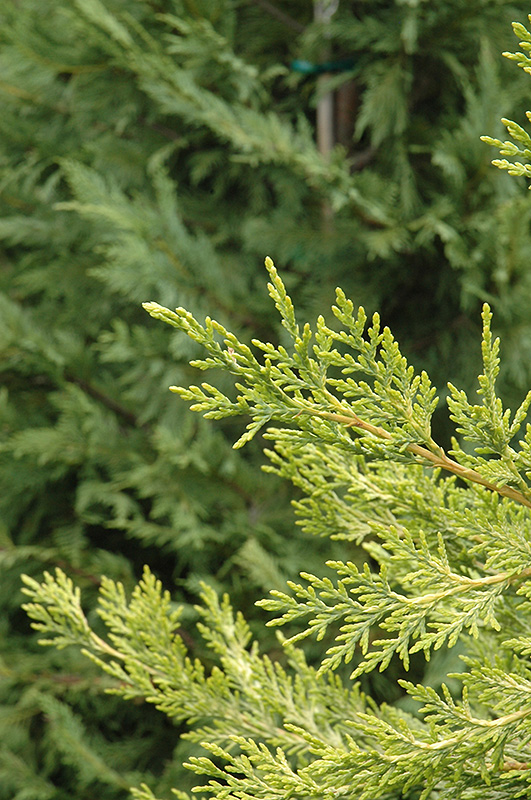Castlewellan Leyland Cypress
Cupressocyparis x leylandii 'Castlewellan'
Height: 50 feet
Spread: 45 feet
Sunlight:
![]()
![]()
Hardiness Zone: 5b
Other Names: Golden Leyland Cypress
Description:
This lovely cypress presents interesting tiny yellow-green and gold foliage that is both fine and dense; naturally pyramidal but can be shaped as topiary or hedge with regular clipping; a beautiful visual impact as a border or accent planting
Ornamental Features
Castlewellan Leyland Cypress is primarily valued in the landscape for its distinctively pyramidal habit of growth. It has attractive chartreuse foliage edged in gold. The tiny scale-like sprays of foliage are highly ornamental and turn coppery-bronze in the fall, which persists throughout the winter.
Landscape Attributes
Castlewellan Leyland Cypress is a dense evergreen tree with a distinctive and refined pyramidal form. It lends an extremely fine and delicate texture to the landscape composition which can make it a great accent feature on this basis alone.
This is a relatively low maintenance tree. When pruning is necessary, it is recommended to only trim back the new growth of the current season, other than to remove any dieback. Deer don't particularly care for this plant and will usually leave it alone in favor of tastier treats. It has no significant negative characteristics.
Castlewellan Leyland Cypress is recommended for the following landscape applications;
- Accent
- Vertical Accent
- Mass Planting
- Hedges/Screening
Planting & Growing
Castlewellan Leyland Cypress will grow to be about 50 feet tall at maturity, with a spread of 45 feet. It has a low canopy with a typical clearance of 1 foot from the ground, and should not be planted underneath power lines. It grows at a medium rate, and under ideal conditions can be expected to live for 60 years or more.
This tree does best in full sun to partial shade. It does best in average to evenly moist conditions, but will not tolerate standing water. It is not particular as to soil type, but has a definite preference for acidic soils, and is able to handle environmental salt. It is somewhat tolerant of urban pollution. This particular variety is an interspecific hybrid.



